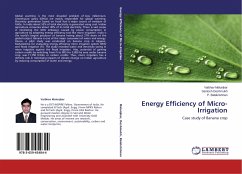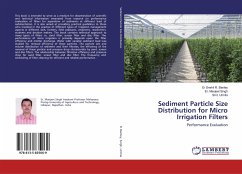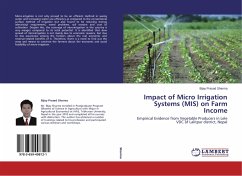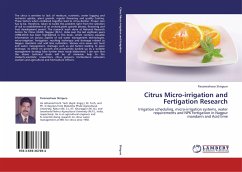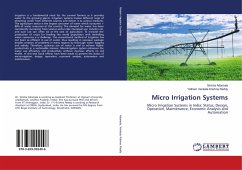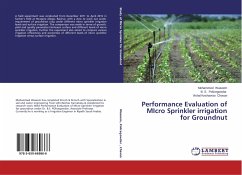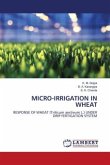Global warming is the most dreaded problem of new millennium. Greenhouse gases (GHGs) are mainly responsible for global warming. Electricity generation based on fossil fuel is major source of emission of GHGs. In India about 52% of total electricity is generated using coal. Indian agriculture consumes about 30% of its total electricity. There is vast scope in minimizing the GHG emissions caused by power consumption in agriculture by adopting energy efficiency tool like micro irrigation. India is the world's largest producer of banana having about 27% share of the global output. Banana is one of the major consumers of water and energy. Hence, a pilot study was conducted on banana crop in Jalgaon, Maharashtra for evaluating energy efficiency micro irrigation system (MIS) and flood irrigation (FI). The study revealed water and electricity saving in micro irrigation against the flood irrigation. Also, potential of gaining carbon credits by switching from FI to MIS for 5,000 ha area under banana crop was 11,750 tCO2e or carbon credits. Thus, micro irrigation has a definite role in minimising impacts of climate change on Indian agriculture by reducing consumption of water and energy.
Bitte wählen Sie Ihr Anliegen aus.
Rechnungen
Retourenschein anfordern
Bestellstatus
Storno

